|
Seminars

Series: Topics in the Aesthetics of Music and Sound
University of Southern Denmark, Campusvej 55, 5230 Odense M, Denmark











SEMINARS, FALL 2011:
Please note that there also will be lunchtime concerts in Cafeteria 4 between 12 noon and 1 p.m. throughout the fall semester. The first will take place on September 8. Concert programs are available on http://soundmusicresearch.org/lunchtimeconcerts.html
All of the seminars are conducted in English, with the exception of the lecture on September 8, 2011, which is conducted in Danish.
Throughout the semester, we will be experimenting with long-distance audience participation via Skype. If you are interested in attending a seminar in this manner, please get in touch with Cynthia M. Grund a few days in advance at cmgrund@ifpr.sdu.dk. The success we experienced with speaker pariticpation via Skype last year has prompted us to try extending the opportunity for "digital presence" to audience members as well.

In chronological order September-December 2011:

Thursday, September 8, 2011, 2:15-4 p.m. in U73.
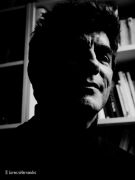 Lyrikken og betydning i tangoens poesi Lyrikken og betydning i tangoens poesi
Claudio Cifuentes-Aldunate, Lektor i spansk ved ILKM, SDU
Resumé:
Tangoen er mere end en dans. Den er et komplekst kulturelt fænomen bestående af lyriske, musikalske og dansrelaterede aspekter. Af disse tre kunstneriske manifestationer i tangoen er det poetiske aspekt særdeles interessant.
I denne præsentation vil jeg principielt fokusere på det betydningsmæssige i tangoens lyrik, med speciel opmærksomhed på de mange sem, der konstant gentager sig omkring isotopien “melankoli”.
Resultat af denne kombination (dans, musik og lyrik) bygger på paradokset “at danse tristheden”.
Nøgleord: Dans, rytme, lyrik, klassisk og moderne tango, aspekter af tangoens evolution.
Poster for the seminar available HERE.
Abstract in English:
Lyric and meaning in tango’s poetry, Associate Professor of Spanish, Literature, Media and Cultural Studies, University of Southern Denmark
More than just a dance, tango is a cultural phenomenon of great complexity, as it comprehends poetry, music and dance all in one. Of the three manifestations of tango, its poetry is of special interest.
The present talk will focus on the significance of poetry in tango. Special attention will be given to some of the particular “semas” that concentrate around the isotopy of melancholy.
The result of this combination (dance, music and poetry) constructs the paradox which rests in “dancing the sadness” of life.
Key words: Dance, rhythm, poetry, classic and modern tango, aspects of the evolution of tango.

Thursday, September 15, 2011, 2:15-4 p.m. in U73.

Markerless Motion Capture
Alex Czarowicz, Vice President of Sales, Organic Motion
Abstract:
Until recently 360 degree markerless motion capture was only a pipe dream. Capturing gesture from an actor required precise location of markers and hours of enduring monotonous calibration and testing before the technical team could finally map the sourced data to content such as digital media such as audio, visuals, and/or an animated character for real-time interactions. The BIG NEWS is that New York based industry-leader Organic Motion (OM) have developed their state of the art platform even further to include advanced MoCap with multiple actor tracking, increased accuracy, no backdrop, and more in-demand capabilities. A mobile system is also under development! Such systems are used by leading companies looking to advance their field by exploring cutting edge applications in industry - for example in contemporary films, health sciences education/research, and rehabilitation. Such explorations are often via Artificial Virtual Environments (AVEs), virtual/augmented/mixed reality sims, games, and/or other created computer-based system concepts.
Musicians, thespians, and dancers are amongst those who are exploring the creative potentials of gesture capture mapped to sonic, visual or other content as an element of contemporary performance.
In line with the above, Alex Czarowicz, Organic Motion's Vice President of Sales will visit from New York to give a limited series of presentations on the OM state of the art in MoCap and animation. See videos at http://www.youtube.com/user/OrganicMotion.
Poster for the seminar available HERE. The abstract for the presentation is available HERE.

Thursday, September 22, 2011, 2:15-4 p.m. in U73. Presentation via Skype.
 Immanuel Kant and Eighteenth-Century Musical Thought Immanuel Kant and Eighteenth-Century Musical Thought
Tomas McAuley, PhD Candidate, Department of Music
King's College London
Abstract: Immanuel Kant’s views on music are generally taken to be of little interest. This is due to two presumptions: (i) that Kant straightforwardly dismissed music as (in his own words) ‘more pleasure than culture’; and (ii) that he did so either out of blind prejudice or out of unthinking adherence to the standards of his age. In this presentation, I question both of these assumptions. I begin by showing how, although Kant did indeed have a low opinion of music, his dismissal is not nearly as straightforward as it may initially seem. I then argue that the reason behind Kant’s negative assessment of music is the philosophical context of his philosophy as a whole. I conclude by suggesting that Kant is a prime example of the way in which changes in musical thought in the late eighteenth century were, to a large extent, driven by changes in philosophy with little or no direct concern with music.
In order to make the presentation accessible to non-specialists, I include brief introductions to eighteenth-century musical thought and to Kant’s philosophy.
Poster for the seminar available HERE.

Thursday, September 29, 2011, 2:30-4 p.m. in U73.

Norms of the Performance Context
Søren R. Frimodt-Møller, PhD
Abstract: When we engage with music, how we respond to a given piece of music (or a given performance within a genre) reflects which parts of the music have our attention in the situation. This attention is shaped by the context of the performance or listening situation. For the performer, the context of the performance, e.g. the context defined by the composition, the genre conventions, the musician's expectations regarding the preferences of the audience etc., constitutes norms that she takes into consideration when shaping her performance - norms meaning, broadly, what e.g. defines what is ”permitted”, ”an obligation” or ”less acceptable” in the situation. For a listener, the conventions of the genre or tradition a performance appears within also shapes the default reception of the music, but in addition, factors related to the immediate environment of the music experience also shapes the listener's total music experience.
Utilizing examples from progressive rock, metal and pop, the talk will present a view of how normativity is shaped in the composer-performer-listener circuit, and how different traits of a piece of music are ”made normative” in a particular context (to use the vocabulary of music philosophers Jerrold Levinson and Stephen Davies).
Poster for the seminar available HERE.

Thursday, October 6, 2011, 2:15-4 p.m. in U73. Presentation via Skype.
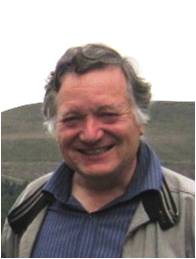 Goals for Cross-Disciplinary Research and Education in Music and IT Goals for Cross-Disciplinary Research and Education in Music and IT
Dr. Barry Eaglestone, Senior Lecturer, U of Sheffield, UK (Retired)
Abstract: Music and IT are now irrevocably linked. This has implications for both music-related research and education. This talk reflects on the nature of the evolving relationship between music and IT. The speaker, who has recently retired from an academic career in computer science and information sciences, will share insights gained from lessons learned during several decades of conducting music informatics and computer science research. He will draw conclusions on the inter- and multi-disciplinary nature of music/IT-related studies, research challenges and the difficulty of defining a core syllabus.
Poster for the seminar available HERE.

Thursday, October 13, 2011, 2:15-4 p.m. in U73. Presentation via Skype.
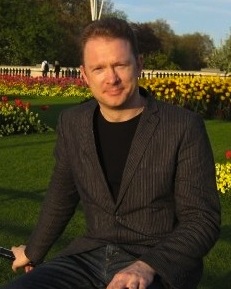
Musicianship, Musical Interpretation, and Cultural Identity: Challenges for Philosophy and the Social Sciences
David G. Hebert, PhD, Professor of Music, Grieg Academy
Faculty of Education, Bergen University College
Abstract: The notion of musicianship – or artistry in the field of music – is a phenomenon that raises an array of philosophical questions intricately tied to problems of interpretation, particularly when music is considered cross-culturally as a profoundly meaningful global practice. In this talk, I will explore the implications of how cultural differences affect our understandings of various forms of music, as well as how relationships between musical practices and cultural identities are rapidly transforming as a consequence of both globalization and the popularization of new media technologies. I will also explore the implications of recent empirical research in relation to these themes and attempt to distill a reasonable projection of possible paths that musicianship and music research may take in the future.
Poster for the seminar available HERE.

Thursday, November 3, 2011, 2:15-4 p.m. in U73. Presentation via Skype.

Romantic Ballet: Features, Conventions and Narratives
Dr. Astrid Bernkopf, Programme Leader Dance Studies, Admisions Tutor for Dance, Department of Performing Arts, Middlesex University, Trent Park Campus, London. Areas of Interest: dance analysis, libretto analysis, narrative analysis, performing arts, history, philosophy of history, critical theory.
Abstract: Romantic ballet, its features and conventions represent the transition between 18th century dance tradition and the 20th century. Here, the most significant works of ballet tradition have been created, whilst new technical aspects such as point work were incorporated into the storylines that have since become classics. This lecture traces the historical development of the aesthetics of this particular style in relation to the narrative and its re-interpretation in the 20th century. It will outline the changes of performance tradition that have established Romantic ballet and present the various elements of these performances. Moreover, the narrative side of these features will be addressed and reference to 20th century postmodern revisions of these performances is made.
Poster for the seminar available HERE.

Thursday, November 10, 2011, 2:15-4 p.m. in U73.

The Cognitive Semantics of Musical Tension
Jens Hjortkjær, PhD, Research Assistant, Department of Arts and
Cultural Studies, University of Copenhagen
Abstract: Our mental ability to connect musical events over time is often described in terms of tension-release patterns. But why do we experience music in that way? Why do musical grammars emerge with the phenomenal quality of tension? I have recently advanced a semantic account of musical tension, arguing that tension patterns in music rely on mental schemas related to interacting forces (as initially discussed by linguist Leonard Talmy).
In this presentation, I will present a listening study demonstrating different force semantic patterns in listeners' real-time response to music. I will also discuss the origins of these dynamic schemas in the earliest sound communication between human infants and their mothers. This generic human musicality - I will argue - is essential in understanding how meaningful behavior emerges in human life.
Poster for the seminar available HERE.

Thursday, November 17, 2011, 2:15-4 p.m. in U73. Presentation via Skype.
 Two Dogmas and the Arts Two Dogmas and the Arts
Catherine Z. Elgin, Professor of the Philosophy of Education, Graduate School of Education, Harvard University.
Abstract: In 'Two Dogmas of Empiricism', Quine discredits the analytic/synthetic distinction and kindred dualisms – scheme/content, necessary/contingent, a priori/a posteriori. He thereby undermines the conceptual underpinnings of traditional philosophy. In the final section of the paper, 'Empiricism without the Dogmas' he asks, in effect, what is left for philosophy to do once the traditional supports have been abandoned. His answer echoes that of the logical positivists – mathematics and natural science remain. Remarkably, he never argues for – indeed never seriously investigates – the assumption that only mathematics and science remain. He takes it for granted that ethics and the arts are irremediably committed to the untenable dualisms.
I think this is a mistake. I believe that the arts, like the sciences, advance understanding. I will argue that music exemplifies properties, patterns, feelings and forms. By making them manifest, it enables us to identify them, recognize them when we encounter them in other contexts, and appreciate their significance. Music thus affords epistemic access to aspects of reality that were previously inaccessible to us. Some are purely or predominantly musical – melodies, harmonies, rhythms, motifs. Others are broadly aesthetic – stylistic properties that cut across genres. Yet others extend beyond the arts. The polite, restrained struggle to be heard, the trade-offs and negotiations that we first recognize in a string quartet can make us aware that the same features are present in ordinary conversational practice. Some of the features music exemplifies are even more abstract. Bach's fugues afford auditory access to mathematical symmetries. Many works exemplify complex and/or subtle emotions, enabling us to discern fine distinctions, recognize surprising equivalences, and appreciate combinations of emotions that we were previously oblivious to. By increasing our sensitivity to what there is and our appreciation of why newly discerned factors are significant, we advance our understanding of ourselves and the world.
The rebuttal to Quine is this: A musical work, like a mathematical proof, can exemplify structure. A musical work, like a scientific experiment, can reveal previously undetected aspects of reality. Like any hypothesis, a hypothesis suggested by an encounter with music, or any other art, must be tested against further experience. Some findings are misleading; some are ambiguous; some are enigmatic. Others are powerful, sustainable, resonant sources of insight. This too is a feature that the arts and the sciences share.
Poster for the seminar available HERE.

Thursday, November 24, 2011, 2:15-4 p.m. in U73. Joint seminar: SDU and Texas Tech.

David Hume's Theories of Beauty and Utility Applied to Issues of Musical Performance - A Cross-Disciplinary Dialogue
William Westney, Paul Whitfield Horn Professor of Piano, Browning Artist-in-Residence School of Music, Texas Tech University.
Cynthia M. Grund, Associate Professor, Institute of Philosophy, Education, and the Study of Religions; University of Southern Denmark.
Abstract: In this conversational lecture performance, we will explore
the connection between beauty and utility in the world of piano playing, where physicality and aesthetics are combined
several ways in which Hume’s marriage of beauty and utility can be relevant to, and beneficial to, the work of a classical performer, both in the practice room and on stage
the role of cross-disciplinarity in contemporary research in the humanities.
The presentation will include exemplifying material at the piano. This seminar further develops topics addressed by Grund and Westney in a paper given at the Annual Meeting of the American Society for Aesthetics, October 26 - 29, 2011, Tampa, Florida.
Poster for the seminar available HERE.

Thursday, December 1, 2011, 2:15-4 p.m. in U73. Presentation via Skype.
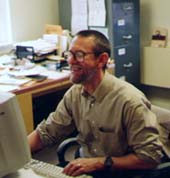
Limits, Risk and Accomplishment in Musical Performance
David Clowney, Associate Professor, Rowan University, Glassboro, New Jersey. Ph.D. Philosophy, Temple University, Philadelphia. When not playing blues and Jazz harmonica, Clowney teaches and does scholarly research in the areas of ethics (including environmental and business ethics), aesthetics, philosophy of religion, and logic.
Abstract: Music is a form of human communication. This is especially true in live performance, where the performer is the communicator, and the performer’s voice, body movements, gestures, facial expressions, and instrumental technique blend with and become part of the music made.
Successful performance is almost always an accomplishment, in which risks are taken and limits of form, instrument, or performer are overcome. Overdone, this detracts from the music and is mere showboating. All the same, the element of accomplishment is an integral and important part of musical performance; it can and should form part of the music, rather than being seen as a distraction. Using a variety of musical examples from various genres, including classical, jazz and blues, and featuring various instruments, including the diatonic harmonica, I explore the ways that accomplishment of this sort becomes an important part of human musical communication, and consider the compatibility of this claim with other ideals of performance that might seem to conflict with it.
Poster for the seminar available HERE.

Thursday, December 8, 2011, 2:15-4 p.m. in U73.
PLEASE NOTE THAT THIS SEMINAR HAS BEEN POSTPONED TO A DATE TBA DUE TO THE GOOD NEWS ON NOVEMBER 3 THAT DANIEL HAS INDEED BEEN HIRED FOR THE JOB IN FINLAND WHICH HE HAD SO BEEN HOPING WOULD COME THROUGH!
. . but there nevertheless are interesting things going on in the research program today: Several members of the research program will be hosting and/or presenting and/or attending . the ArtsIT conference on the campus of Aalborg University Esjberg on this day. The conference runs December 7- 8 (http://artsit.org/show/home) and for those who are interested, important information is available HERE.
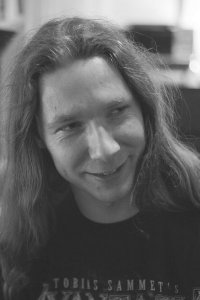
The Notion of Authenticity and Its Implications for Musical Aesthetics
Daniel Frandsen, mag.art.
Abstract: When working with topics in musical ontology, one is often led into a debate about musical aesthetics. Ascribing the property of authenticity to a piece of music will in many cases be interpreted as a statement about the aesthetic value of that piece of music and not just a claim about ontological matters, which can confuse the issue. Not helping this matter is the fact that the notion of authenticity is mostly underspecified in the philosophical literature. But does the ascription of authenticity have any implications for musical aesthetics? In order to answer this question we must at the outset, analyze the notion of authenticity isolated from the field of aesthetics. Secondly, it is necessary to determine what is of aesthetic relevance for the piece of music in question, without implying that it is merely a matter of personal taste.
In this presentation I will attempt to show in what sense musical authenticity and musical aesthetics are related, and under which circumstances the ascription of authenticity is merely an ontological matter. This will be done with reference to theories by Joel Rudinow, Peter Kivy and Matthew Kieran among others.
Poster for the seminar available HERE.

Thursday, December 15, 2011, 2:15-4 p.m. in U73. Presentation via Skype.

Bach in Everyday Life: ´Choral Capital´ As Well-Being and the Socio-Musical Identities of Amateur Choristers Who Perform Art Music
Sigrún Lilja Einarsdóttir
PhD student in Sociology – University of Exeter, England
Part time lecturer – Bifröst University, Iceland
Abstract: This paper presents socio-musical research that was carried out with an amateur Bach choir as its focus, where the main purpose has been to study the experiences of amateur choristers as they rehearse and perform large-scale choral music.
This study is based on an interdisciplinary approach, utilizing concepts and ideas from a variety of fields of study – primarily sociology and music sociology but also music psychology, music history (especially Bach scholarship), music education, and interdisciplinary studies on music, health and well-being.
The methodological approach consists of a grounded theory-based, single case study where the case was the Croydon Bach Choir in London performing J.S. Bach´s Mass in B Minor, using participant observation (I sang with the choir for one semester) and qualitative interviews as main research methods, while demographic background data on choral members was collected via a paper-based survey. Whereas much research on music performances has been conducted, I am unacquainted with any choral research is where the direct participation of the researcher as a member of the choir is used as one of the main research methods.
The results of this study indicate that participants develop a certain socio-musical identity through their choral participation in general by relating to and reconstructing J.S. Bach and by facing the challenge of performing a large scale choral work. Their choral activities form a valuable addition to their social and cultural capital (´choral capital´) which they use as a source of well-being in everyday life.
Poster for the seminar available HERE.

Please see the following networks for additional information about activities within The Aesthetics of Music and Sound:

JMM: The Journal of Music and Meaning (Funded by the Danish Research Council for the Humanities.)

Nordic Network for the Integration of Music Informatics, Performance and Aesthetics (originally supported by NORDPLUS and subsequently by NORDFORSK)

netværk for tværvidenskabelige studier af musik og betydning/
network for cross-disciplinary studies of music and meaning

|
|
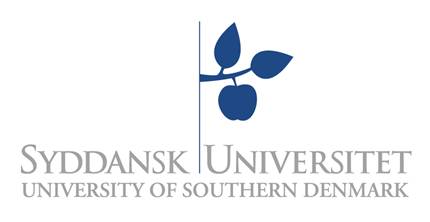

Department for the
Study of Culture
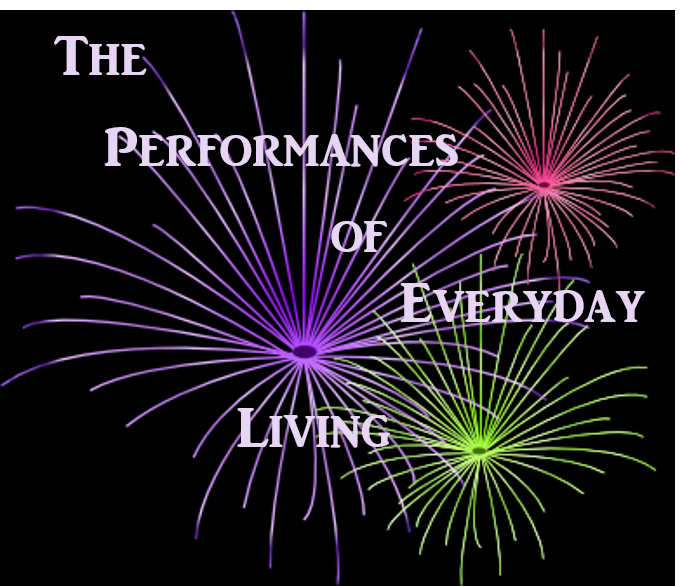
Research Director for
The Performances of
Everyday Living
Coordinator for
The Aesthetics of
Music and Sound
and
Editor and Webmaster for
www.soundmusicresearch.org:
Cynthia M. Grund
cmgrund@sdu.dk


Updates

PLEASE NOTE: During the month of March 2015 and possibly extending into April/May 2015, heavy construction will be taking place on this website behind the scenes as it "migrates" to new editing software. Please be patient with us during this period if occasionally some pages take on a strange appearance, or if updating seems to be a bit erratic. All efforts will be made to maintain the integrity of the page with the schedule for the seminar series Topics in the Aesthetics of Music and Sound: Mostly Metal here, but it will nevertheless be a good idea also to keep an eye on our Facebook group here and the regularly occurring announcements of events on it during this period. Thank you for your patience!
During March-May 2015 we will also continue to develop our new

channel, which we encourage you to visit here.
Archive
for ""Updates" and "News":
Click HERE.

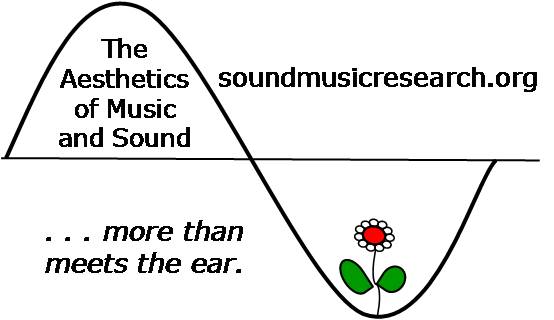
| |